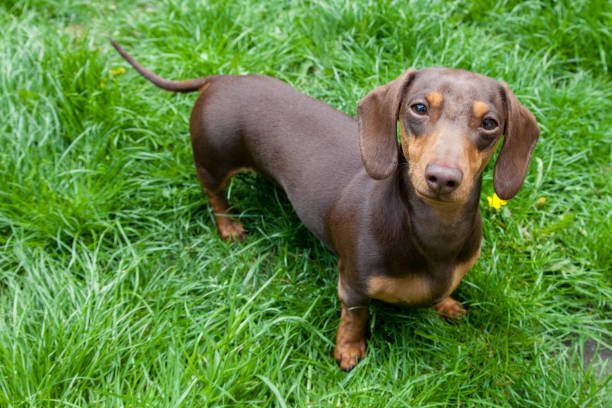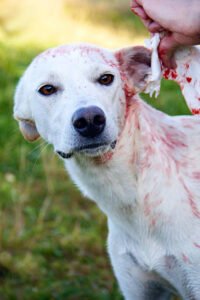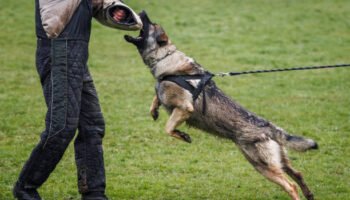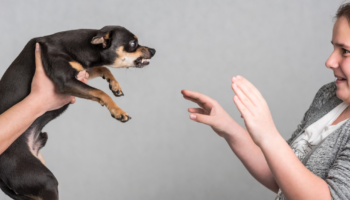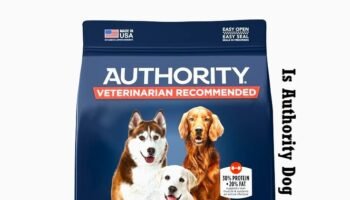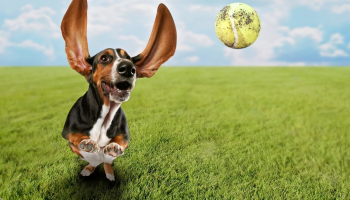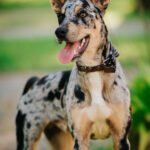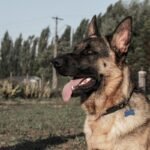Are Dachshunds Hypoallergenic Dogs? A Complete Explanation
Dachshunds, also known as Doxies or sausage dogs, are undeniably charming with their short legs, long bodies, and big personalities. They’ve captured the hearts of many people, including those with allergies. But before you rush out to adopt a Dachshund, there’s an important question to consider: are Dachshunds hypoallergenic dogs? Let’s explain this topic to help you decide if bringing a Dachshund into your household is the right choice for you.
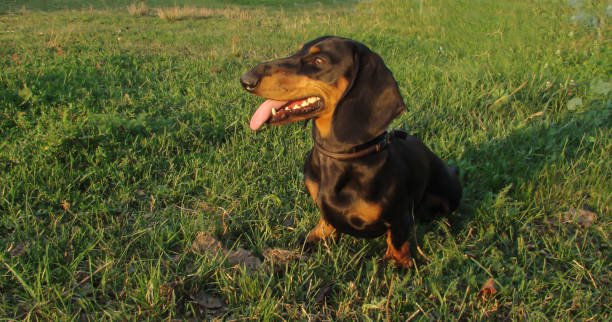
What Does "Hypoallergenic" Really Mean?
“Hypoallergenic” is a term commonly used to describe certain dog breeds that are believed to be less likely to trigger allergic reactions in individuals prone to allergies. However, the term can be a bit misleading. While it’s true that some breeds produce fewer allergens than others, there is no such thing as a completely hypoallergenic dog. All dogs produce allergens, primarily through their saliva, urine, and skin dander. What sets certain breeds apart is their tendency to shed less dander, which can be a common trigger for allergies in humans. Therefore, while opting for a hypoallergenic breed may reduce the likelihood of allergic reactions for some people, it’s important to recognize that no dog breed is entirely free of allergens.
Why Aren't Dachshunds Hypoallergenic?
Dachshunds, regardless of their coat type—smooth, wirehaired, or longhaired—do not qualify as hypoallergenic breeds due to their shedding tendencies. Shedding fur, which carries dander, is a significant allergen for people with dog allergies.
Smooth Haired Dachshunds:
Smooth-haired Dachshunds are known for their sleek and glossy coats. Despite their short fur, they still shed moderately throughout the year. Shedding occurs as a natural process where old or damaged hair is replaced with new growth. The shedding fur carries dander, which contains proteins from the skin, saliva, and urine of the dog, making it a potential trigger for allergic reactions. Owners of smooth-haired Dachshunds may need to implement regular grooming routines, including frequent brushing, to minimize the presence of allergens in their homes.
Wirehaired Dachshunds:
Wirehaired Dachshunds boast a distinctive coat texture characterized by a wiry outer layer and a dense undercoat. Compared to their smooth-haired counterparts, wirehaired Dachshunds shed less frequently. However, their unique coat requires specialized care to prevent matting and maintain its texture. Professional grooming sessions are often necessary to manage their fur effectively. Despite shedding less frequently, wirehaired Dachshunds still produce dander, albeit potentially in lower quantities than other coat types, making them unsuitable for individuals with dog allergies seeking hypoallergenic breeds.
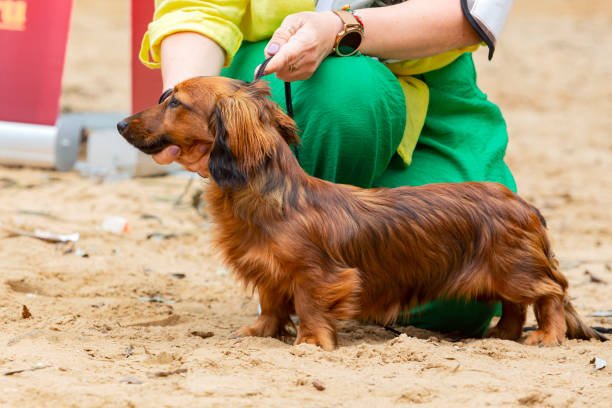
Longhaired Dachshunds:
Longhaired Dachshunds exhibit luxurious coats with flowing strands of fur, adding to their distinctive appearance. While longhaired Dachshunds shed moderately, their fur can trap dander more easily due to its length and texture. This trapped dander can exacerbate allergic reactions in sensitive individuals. Regular grooming practices, including thorough brushing, are essential to manage shedding and minimize the accumulation of allergens in the home environment. Despite their aesthetic appeal, longhaired Dachshunds, like other coat varieties, cannot be classified as hypoallergenic due to their shedding tendencies and the associated distribution of allergenic dander.
In summary, while Dachshunds come in various coat types, none of them qualify as hypoallergenic breeds. All coat varieties shed fur, carrying allergenic dander that can trigger allergic reactions in susceptible individuals. Owners of Dachshunds, regardless of coat type, should implement regular grooming practices to manage shedding and minimize the presence of allergens in their homes.
Living With Dachshunds if You Have Allergies
So, you're in love with Dachshunds, but those pesky allergies are putting a damper on your dreams of sharing your life with one of these adorable pups. Fear not! Here's a handy guide to help allergy sufferers navigate the world of Dachshund ownership:
Know Your Enemy: Get an Allergy Test!
First things first, let's understand what we're dealing with here. Get yourself an allergy test. It's a simple step that can reveal just how much dog dander sets off your sneezing fits. Knowing the severity of your reaction will help you tailor a plan to manage those pesky symptoms. The Mayo Clinic highlights the importance of allergy testing in crafting effective treatment plans, so it's definitely a step worth taking.
Create a Clean Haven: Make Your Home Allergy-Friendly!
Now that you know what you're up against, it's time to transform your home into a sanctuary from allergens. Regular vacuuming with those nifty HEPA filters, frequent washing of bedding, and investing in air purifiers are your secret weapons against pet allergens. The Asthma and Allergy Foundation of America (AAFA) swears by these methods for reducing pet allergens in your living space, so get ready to banish those sneeze-inducing particles!
Manage Your Dachshund's Dander: Tackle the Tiny Culprit!
Ah, dander, the tiny troublemaker clinging to your Dachshund's fur. Brushing your furry friend outdoors on the regular is key to keeping loose fur and dander at bay before they invade your home. And hey, why not make it a bonding experience? Plus, keeping your Dachshund off the furniture and giving them a good wash now and then can go a long way in minimizing allergens. Research shows that these grooming practices really do make a difference in reducing allergens in pet owners' homes, so it's worth the effort.
Alternative Dachshund Experiences: Explore Your Options!
For those with super-sensitive allergies, fret not! There are still ways to get your Dachshund fix without the constant sneeze-fest. Consider fostering a Dachshund or arranging playdates with the breed at a friend's house. It's a win-win situation—you get to enjoy the company of these charming pups without the constant exposure to allergens.
Considering Other Options:
If allergies are severe, there are alternative options to having a Dachshund in your own home. One possibility is to consider fostering a Dachshund from a local shelter or rescue organization. Fostering allows you to experience the joy of caring for a Dachshund without the long-term commitment, giving you the opportunity to assess how well you manage your allergies in their presence. Additionally, spending time with Dachshunds at a friend's or family member's home can provide companionship without the constant exposure to allergens. This arrangement allows you to enjoy the company of Dachshunds in a familiar environment while still maintaining control over your allergy symptoms.
Top Hypoallergenic Dog Breeds for Allergy Sufferers
Dachshunds are undeniably charming, but if allergies are a concern, there are many other fantastic small dog breeds known for being hypoallergenic. These breeds typically shed less fur and dander, reducing the allergens that trigger allergy symptoms in people.
Here are some popular options to consider:
Poodles (Toy, Miniature, Standard):
Poodles are often recommended for allergy sufferers because they have hair instead of fur, which reduces the amount of dander they shed. They come in various sizes—Toy, Miniature, and Standard—suitable for different living situations. Poodles are known for their intelligence, trainability, and hypoallergenic qualities, making them a popular choice for families with allergies.
Bichon Frise:
Bichon Frises are small, fluffy dogs known for their cheerful disposition and hypoallergenic coat. Their curly, dense fur traps dander effectively, reducing the amount that is released into the environment. Bichons are friendly, affectionate companions that thrive on human interaction, making them great pets for allergy sufferers who enjoy close bonds with their furry friends.
Maltese:
Maltese dogs are tiny yet full of personality, with long, silky coats that are hypoallergenic and low-shedding. Their single-layered fur minimizes the spread of dander, making them a suitable choice for individuals with allergies. Maltese dogs are gentle, playful, and adaptable, making them well-suited for apartment living or households with allergy-sensitive occupants.
Yorkshire Terriers:
Yorkshire Terriers, or Yorkies, are small dogs with a long, silky coat that sheds minimally and produces less dander. While they require regular grooming to maintain their coat, their hypoallergenic qualities make them a popular choice for allergy sufferers. Yorkies are known for their feisty personality, intelligence, and affectionate nature, making them great companions for individuals seeking a small, hypoallergenic breed.
Shih Tzus:
Shih Tzus are small, affectionate dogs with a luxurious coat that requires regular grooming but sheds minimally. Their hypoallergenic fur produces less dander, making them suitable for allergy sufferers. Shih Tzus are known for their friendly disposition, playful nature, and devotion to their families, making them ideal pets for individuals seeking a small, hypoallergenic companion.
Remember, individual allergies can vary. Even with hypoallergenic breeds, allergy testing and talking to your doctor is always recommended before bringing a new furry friend home. Spending time with a specific breed at a shelter or friend’s house can also be a good way to gauge your own allergic reaction.
In conclusion,
While Dachshunds may be beloved for their unique personalities and charming appearance, it’s essential to recognize that they are not hypoallergenic dogs. Despite variations in coat types among smooth, wirehaired, and longhaired Dachshunds, all breeds shed fur that carries dander, a common allergen for people with dog allergies. Therefore, individuals with allergies should proceed with caution when considering Dachshunds as pets and implement appropriate measures to manage allergens in their living environment. Ultimately, the question remains: Are Dachshunds hypoallergenic dogs? The answer is no.
FAQ's
Are dachshunds hypoallergenic dogs?
I have allergies, can I still own a dachshund?
What are some signs of dog allergies?
Are there any dachshund coat types that are better for allergies?
What are some other small dog breeds that might be a better fit for allergy sufferers?
Do Dachshunds shed a lot?
Join us on another social media platforms:

